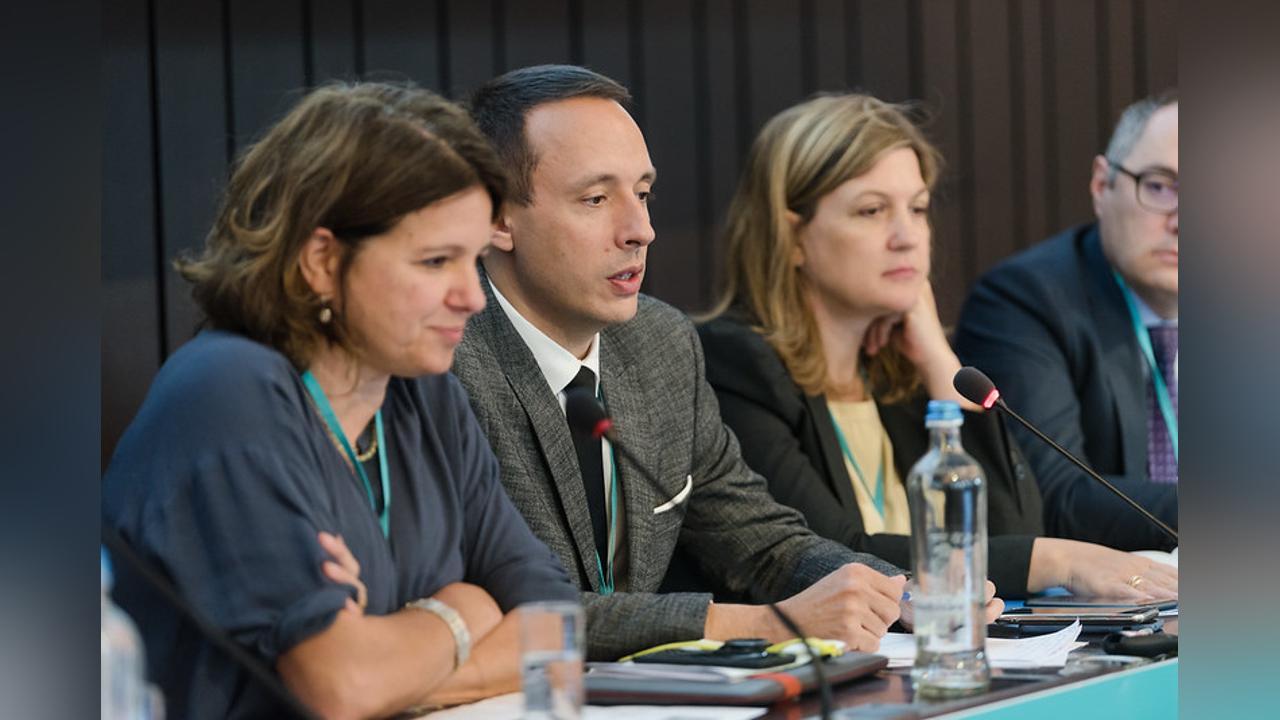Africa-Press – Eswatini. Head of Co-operation of the European Union (EU) Delegation to the Kingdom of Eswatini, Eva-Maria Engdahl, took part in a one-day visit to partners of the EU-funded programme.
The programme visited is called ‘Eswatini: Promoting growth through competitive alliances’, which is being implemented by the International Trade Centre (ITC) Alliances for Action.
The main objective of this EU-funded programme is to support job creation for small farmers, entrepreneurs and artisans. It also seeks to promote export-led growth, especially through the full utilization of the Southern African Development Community-European Union Economic Partnership Agreement (SADC-EU EPA). The visit included stops at the Vukani BoMake Cottage Factory in Ezulwini, the coffee farm of Eswatini Coffee at Elwandle and the Guba Permaculture Education and Training Centre in Malkerns. The visit ended at House on Fire, also in Malkerns, where Engdahl visited the Black Mamba Foods shop, met 10 young and emerging businesses under the EU-ITC Artisanal Incubator Programme ‘Future Icons’, and met with the rest of the partners under the ITC-EU funded project for a luncheon.
Speaking during the visit by the EU Head of Co-operation at the Vukani BoMake Ezulwini Cottage Factory, Far East Textiles Managing Director and Business Women Eswatini Chairperson, Tokky Hou, said the project, which turns textile waste into treasure, is already driving sustainable growth of the textile sector.
Waste
“We have found a solution to a problem that troubles the whole world: textile waste. We cannot afford, as a country that has a high unemployment rate, to throw textile waste away. Therefore, we collect it to make different products under our factory cottages throughout the country,” she said. The collaboration between Far East Textiles and the Vukani BoMake project has resulted in training of 104 women and youth on garment production using recycled material, as well as setting up a cottage factory in Ezulwini. This became the 13th factory under Vukani BoMake project. At Eswatini Coffee, Co-founder Patrick Du Pont said they are currently working with a network of 12 farmers from various communities. They are also working on formalising their growers association to increase their bargaining power, especially in the export market. Eswatini Coffee has 4.3 hectares of coffee and they are expecting between five to 10 tons of produce this year. “By 2025, we are expecting not less than 30 tons of coffee from the same area as the trees continue to grow. We are expecting them to last not less than 20 years,” he said.
Jobs
Eswatini Coffee created 12 permanent jobs and about 20 seasonal jobs for coffee pickers between April and September. “We are working very hard towards making sure that we adapt to invest and adapt to Environmental, Social, and Governance (ESG) standards,” Mr. Du Pont said. Through the programme, funded by the EU and implemented by the ITC, Eswatini Coffee trained 120 coffee growers. These coffee growers are now part of the coffee value chain and the coffee growers’ network. The programme also assisted Eswatini Coffee in setting up a nursery, which can grow 20 000 coffee seedlings that they produce and distribute to their growers’ network. As of today, they have already supplied and planted more than 16 000 Arabica coffee plants in all the targeted communities.
The capacity building initiatives also included the establishment of 28 coffee demo plots in the country. The programme is also linking Eswatini Coffee to new markets, which saw them participate in the World Coffee Expo Dubai 2023 and the World of Coffee Athens 2023. Guba Permaculture Education and Training Centre has been providing training and education programmes for people from all over the country since 2009, especially from their neighboring communities. “People come here for training. They learn specific skills and concepts that they can then apply back at their homes,” Guba Permaculture Director Sam Hodgson said. “A lot of focus has been on food systems because they are small scale and less costly as our students can use the material that is available at their disposal,” he further stated.
For More News And Analysis About Eswatini Follow Africa-Press







